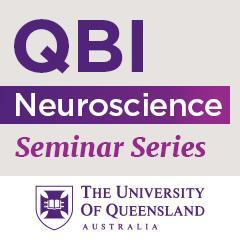Professor Andrew Dillin, USA : “Orchestrating aging across a troubled soma”

Speaker:
Professor Andrew Dillin
Howard Hughes Medical Institute (HHMI) Investigator
Dept of Molecular & Cell Biology, University of California Berkeley
Title: “Orchestrating aging across a troubled soma”
Abstract:
Defects of the mitochondria have been implicated in many diseases. Due to the diverse set of mitochondrial functions, many proteins must be imported into the organelle, properly folded, and assembled into large complexes with proper stoichiometry. Failure in any of these processes is disastrous, as unfolding, misfolding, or even improper numbers of proteins may cause loss of function of the organelle. Accordingly, several mitochondrial quality control mechanisms exist, which ensure homeostasis within the organelle. Many – if not all – of these quality control machineries have been shown to functionally decline during the aging process, making mitochondrial quality control an intriguing aspect in our understanding of aging.
Over the last decade, we have discovered, using the genetically-tractable nematode C. elegans, that mitochondrial dysfunction in neurons, is capable of eliciting long-range effects of inducing the UPRmt in distal tissues, which has direct implications on organismal physiology. Further, work by our lab showed that inducing the activity of the positive regulator of UPRmt JMJD-1.2/PHF8 solely in neurons is capable of eliciting beneficial effects, including prolonged lifespan, that is mediated by systemic activation of the UPRmt. The capacity of neurons to communicate stress is not specific to UPRmt, as similar findings have been reported in non-autonomous communication of UPRER and the cytosolic heat-shock response (HSR). Moreover, while neurons have been at the center of scientific research in the field of neurobiology, we have recently identified glia as an important cell type mediating cell non-autonomous activation of physiological stress responses and lifespan. In particular, we identified astrocyte-like CEPsh glia to be sufficient in communicating long-range UPRER across the organism, similar to neurons. Therefore, we hypothesize that glial cells may be able to coordinate the activation of the UPRmt between tissues through a mechanism distinct to that of the UPRER.
About Neuroscience Seminars
Neuroscience seminars at the QBI play a major role in the advancement of neuroscience in the Asia-Pacific region. The primary goal of these seminars is to promote excellence in neuroscience through the exchange of ideas, establishing new collaborations and augmenting partnerships already in place.
Seminars in the QBI Auditorium on Level 7 are held on Wednesdays at 12-1pm, which are sometimes simulcast on Zoom (with approval from the speaker). We also occassionally hold seminars from international speakers via Zoom. The days and times of these seminars will vary depending on the time zone of the speaker. Please see each seminar listed below for details.



